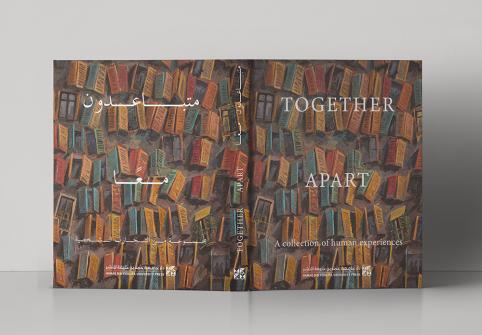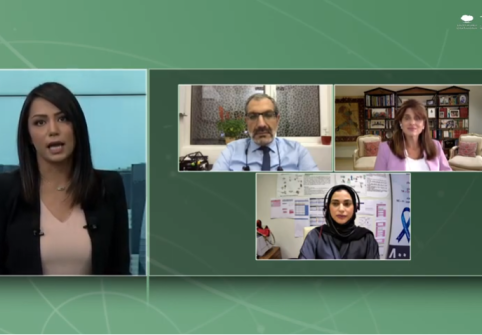Opinion editorial The Moral Consequences of COVID-19
M. Evren Tok and Bayan Khaled
Over the past 50 years, we have been witnessing a commodification of almost every aspect of life. The privatization of education, health care, security, water, electricity, and nearly everything else became our daily reality. Moreover, each global crisis in the past 50 years was politically used to legitimize further ascendancy of markets and depict a situation of decreasing state capacity. Yet, paradoxically, governments continue to be portrayed as saviors in such instances.
Today, we are facing yet another global crisis with COVID-19, and we need to begin working towards recovery. Full-fledged recovery necessities a departure from the physical and social effects of the disease, one example of which is the global moral panic it has caused. To do so, we should refer to Her Highness Shaikha Moza’s bint Nasser’s recent post on Instagram, which calls on everyone to realize the depth and longevity of the crisis we are in.
Since the 1970s, states around the world have been pursuing neoliberal policies that see competition as central to the organization of social and economic relations. It was assumed that free and unregulated markets would deliver the most optimal allocation of resources – allocation that can never be achieved with state planning. This new wave of capitalism radically changed state-society relations.
Today, we are witnessing a call for global moral responsibility to mitigate the needs of those who fell victim to COVID-19. Yet, we are seeking strong and “caring” governments to cure the masses, provide resources, and rectify losses.
The “#StayHome” hashtag has grown in popularity as it encourages (or rather puts pressure on) the global community to reduce the chances of virus transmission. This hashtag aims to remind members of the community to look after one another other and refrain from self-centered activities. No matter how desperately someone “wants” to go out and visit friends, or go shopping, they need to realize that they would be putting everyone else at risk. But although the hashtag was founded on moral principles and as a vehicle for ethical responsibility, it doesn’t take into account that it is only applicable to those who actually have a “home”. What about those who have nowhere to go? Or those with no resources to sustain for a couple of weeks?
If you are reading this, you are likely lucky enough to have a place where you can self-isolate, and most likely with loved ones. Whether you are alone or with family, you may also have the luxury of watching Netflix or reading a book in the comfort of your own home as you wait this period out.
COVID-19 is a reminder for us to think about those who do not have the privilege to “stay at home” and remain safe under lockdown. To support this reminder, several social media posts appear to tackle these exact issues. For example, several posts have read: “Dear world, how is the lockdown? - Kashmir”, “Dear world, how are the travel bans? - Palestine”, “Dear World, how is the fear? - Uyghur, China” and “Dear world, how is separation from loved ones? - Syria” These few examples highlight that those of us who live fearlessly and comfortably under normal, day-to-day circumstances should never take our lives for granted. Other social media reminders have read: “To those who now have 28 bags of pasta. To those searching the black market for hand sanitizer. To those fighting over toilet rolls. And to those planning to flee out of a coronavirus infected area: Never again look down on people who flee war and famine.”
Her Highness Shaikha Moza bint Nasser’s message encourages us to question the assumptions we have been taking for granted for a long time. The existing discrepancies, asymmetries, and inequalities humanity caused in the past 50 years in terms of access to basic human needs, education, health, and work have led to many of us being subjected to judgement, or action being taken based on one’s material worth rather than moral and ethical worth. Citizens have inevitably become “consumers”, and our senses have been severely impaired due to us defining value with reference to how much we “can” consume. We started to define academic success based on the way we make commercial value out of it. “Development” has became synonymous with “financial wealth”. Excessive reliance on material gain resulted in anomalies such as market fetishism.
What humanity needs is for the people of the world to become “citizen pilgrims”, which is a term that Dr. Richard Falk, a professor at Princeton University, referred to in one of his recent speeches at Hamad Bin Khalifa University about bringing communities together to work for a better future for all. A ‘citizen pilgrim’, as he defined, “is a person with a trusting faith in the unseen yet desired end of human endeavors. Such a person engages in struggle and conceives of his or her life as a spiritual journey or pilgrimage toward a better future.” Only with this mindset would we be able to establish a path that is genuinely devoted to working towards human and global interests.
COVID-19 made it clear that we have been looking for quick fixes to inherent human needs and problems. We have been prioritizing materialistic concerns over moral ones. We have been resorting to Band-Aids to mitigate global problems. Today, we are facing one harsh reality – we have reached an impasse. We need a new beginning, and humanity needs an epiphany; in Her Highness’ words, a “breakthrough”, a paradigm shift that will help us “come back to our senses”.
This article has been co-authored by M Evren Tok, an assistant dean of innovation and community engagement at the College of Islamic Studies and Bayan Khaled, a research fellow at the College of Islamic Studies at Hamad Bin Khalifa University.
This article is submitted on behalf of the author by the HBKU Communications Directorate. The views expressed are the author’s own and do not necessarily reflect the University’s official stance.






